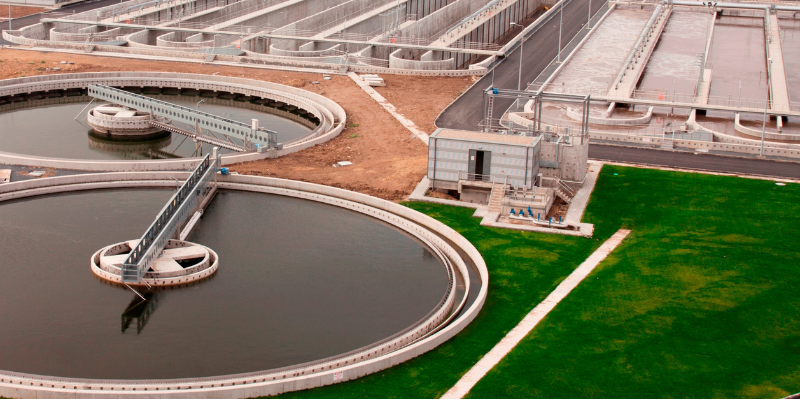Wastewater Treatment Expert
A wastewater treatment expert, also known as a water treatment specialist or environmental engineer specializing in wastewater, plays a critical role in managing and optimizing wastewater treatment processes. To better understand wastewater treatment, please see our blog here.

Their Education & Experience
The education and qualifications necessary to become a wastewater treatment expert vary depending on the specific job responsibilities, industry sector, and level of expertise. These experts commonly have a bachelor’s degree in environmental engineering, civil engineering, chemical engineering, or a closely related field, providing a strong foundation in principles of fluid mechanics, water chemistry, environmental science, and engineering design. Some wastewater treatment experts have a master’s degree in environmental engineering, specializing in water and wastewater treatment, providing them with advanced knowledge of wastewater treatment processes, environmental regulations, research methods, and project management.
Most wastewater treatment experts obtain professional certifications to demonstrate their expertise and knowledge in the field. For example, certifications from organizations like the American Academy of Environmental Engineers and Scientists (AAEES) or the Water Environment Federation (WEF) would be beneficial. Seasoned experts have hands-on experience through internships, co-op programs, or positions in wastewater treatment facilities, consulting firms, or government agencies. These are valuable in gaining practical skills, understanding industry practices, and applying theoretical knowledge in real-world settings. Wastewater treatment experts will likely engage in continuing education and professional development activities to stay updated on industry trends, regulatory changes, emerging technologies, and best practices.
What a Wastewater Treatment Expert Does
Some key responsibilities and tasks that a wastewater treatment expert typically performs:
- Design and Planning: Wastewater treatment experts are involved in designing and planning wastewater treatment systems, including selecting appropriate technologies, determining treatment processes, and optimizing system layouts to meet regulatory requirements and environmental standards.
- Process Optimization: These experts analyze and optimize wastewater treatment processes to improve efficiency, reduce operating costs, enhance treatment performance, and minimize environmental impacts. This may involve pilot studies, evaluating treatment alternatives, and implementing process improvements.
- Regulatory Compliance: Wastewater treatment experts ensure that wastewater treatment facilities comply with regulatory requirements, permits, and standards set by environmental agencies. They stay updated on regulatory changes, conduct audits, and prepare reports to demonstrate compliance.
- Troubleshooting and Maintenance: These experts troubleshoot operational issues, diagnose equipment problems, and develop maintenance strategies to ensure the reliability and longevity of wastewater treatment systems. This includes scheduling inspections, conducting performance evaluations, and recommending repairs or upgrades as needed.
- Technology Evaluation: Wastewater treatment experts assess new technologies, equipment, and treatment methods for their feasibility, effectiveness, and suitability for specific wastewater treatment applications. They conduct research, perform feasibility studies, and recommend technology upgrades or innovations to enhance treatment efficiency.
- Data Analysis and Reporting: Wastewater treatment experts analyze data from monitoring systems, laboratory tests, and operational logs to evaluate treatment performance, identify trends, and make data-driven decisions. They prepare comprehensive reports, performance metrics, and environmental impact assessments for internal use and regulatory compliance.
- Environmental Impact Assessment: These experts assess the environmental impact of wastewater treatment processes, effluent discharge, and sludge management practices. This includes evaluating potential risks, conducting environmental impact assessments, and implementing mitigation measures to minimize adverse effects on ecosystems and public health.
- Research and Development: Wastewater treatment experts contribute to research and development initiatives focused on improving wastewater treatment technologies, developing sustainable practices, and addressing emerging challenges such as nutrient removal, micro-pollutant control, and energy efficiency.
The Bottom Line
A wastewater treatment expert plays a multifaceted role in ensuring the efficient, sustainable, and compliant operation of wastewater treatment systems, while also contributing to environmental protection and public health goals. The combination of their education, practical experience, professional certifications, and ongoing learning is essential for gaining the expertise to assist wastewater treatment clients. Continuous learning and staying abreast of industry advancements are key to success in this dynamic and important field.
LEC Partners
LEC Partners
has over 180 experts that can help navigate your bioeconomy needs. If you need assistance with your wastewater project(s), please Contact Us.
Have some questions?
Not sure where to start?
Let's start a conversation. We're here to help you navigate
the bioeconomy with confidence.

